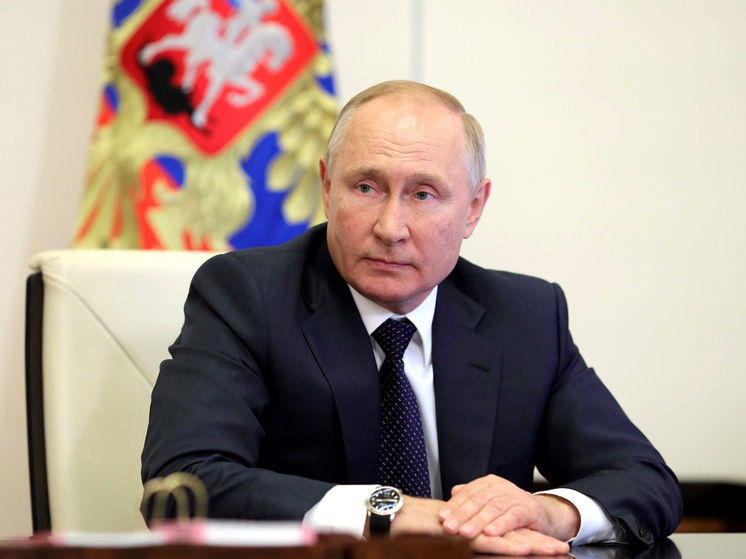Seoul and Tokyo also understood everything
The president of the country, which is now the absolute world record holder for the number of international sanctions imposed against it, visits the previous owner (or co-owner, if you also count Iran) of this title. And the “champion overthrown from his pedestal” is absolutely not worried about this circumstance. Vladimir Putin’s visit to the DPRK is a rare case when official rhetoric in the style of “we are fighting shoulder to shoulder” fully reflects reality. The geopolitical reality of the summer of 2024 is that Moscow and Pyongyang are natural allies. The mere presence of North Korea strengthens Russia.

The presence of Russia, a country that has passed the point of no return in its relations with the West and is firmly committed to successfully completing the NWO, strengthens North Korea. The main thing to remember is that the principle of “do not overdo it” fully applies to allied relations — especially with such an unusual country as the DPRK.
On June 5 of this, Vladimir Putin made the following statement: “We think about the fact that if someone considers it possible to supply such weapons to a combat zone to strike our territory and create problems for us, then why do we not have the right to supply our weapons of the same class to those regions of the world where attacks will be made on sensitive targets of those countries that do this against Russia? That is, the answer may be symmetrical.” And in less than two weeks, the Russian President arrives on an official visit to Pyongyang. The combination of these two events in itself is in no way a reason to draw any final and comprehensive conclusions.
The supply of weapons to the DPRK is prohibited by UN Security Council sanctions — the only sanctions that Russia considers legal and legitimate. But, as they say, he who has ears and eyes sees and hears. The Korean Peninsula is one of the most strategically significant regions in the world. In a relatively small territory, the interests of a variety of forces and powers intersect: the USA, China, Japan and South Korea. China, the holder of predominant economic and political influence in the DPRK, does not, of course, count in this equation. Expanding cooperation between Moscow and Pyongyang does not threaten its interests. But for Tokyo and Seoul, such an expansion of cooperation is quite a significant deterrent: they should not go too far in their support for Ukraine.
If you overdo it in this matter, then “Ukraine” (in the sense of an active armed conflict) can begin right next to your borders and-or even inside these very borders. Of course, I am describing the most extreme scenario, which is unlikely to come true. A return to a state of head-on conflict with the West is not in Pyongyang’s interests. It is in his interests to constantly play on the edge without crossing this very edge. However, now Russia can also play this game (but why can it play? It’s already playing!). As I noted above, it is extremely important not to get too carried away here and, instead of exerting a restraining influence on Seoul and Tokyo, not to force these capitals to take extreme positions. But who am I actually teaching? Playing on the edge is what Russia’s entire foreign policy now boils down to.
However, this, of course, is not all. The game “within the edge” (forgive me if I forgot my own warning and went too far with the images) is also a very promising direction for expanding cooperation between Moscow and Pyongyang. A significant part of this trend also “loves silence” —in the sense not subject to disclosure. But here is a completely unclassified example of how the interests of Russia and North Korea can fit together almost perfectly. Our country is suffocating from a lack of labor, but at the same time dreams of migrants who behave in a disciplined manner and do not mix with the local population. Such migrants simply cannot exist in nature? Your lies! When North Korea exports its labor force, that labor force operates like closed communities—miniature versions of the DPRK itself on foreign soil. No one really knows what exactly is going on inside these closed communities. But they are not the sources of the problems that Russian citizens now associate with guest workers.
“Relations of friendship and good neighborliness between Russia and the DPRK, based on the principles of equality, mutual respect and trust, date back more than seven decades and rich in glorious historical traditions» — these words from Vladimir Putin’s article published in the main newspaper of North Korea, Nodong Sinmun, are nothing more than a polite diplomatic formula. Until recently, relations between Moscow and Pyongyang were in a deep freeze. But what happened has passed. Relations between the Russian Federation and the DPRK are now experiencing a new flourishing — directly proportional to the decline of relations between Russia and the West.

